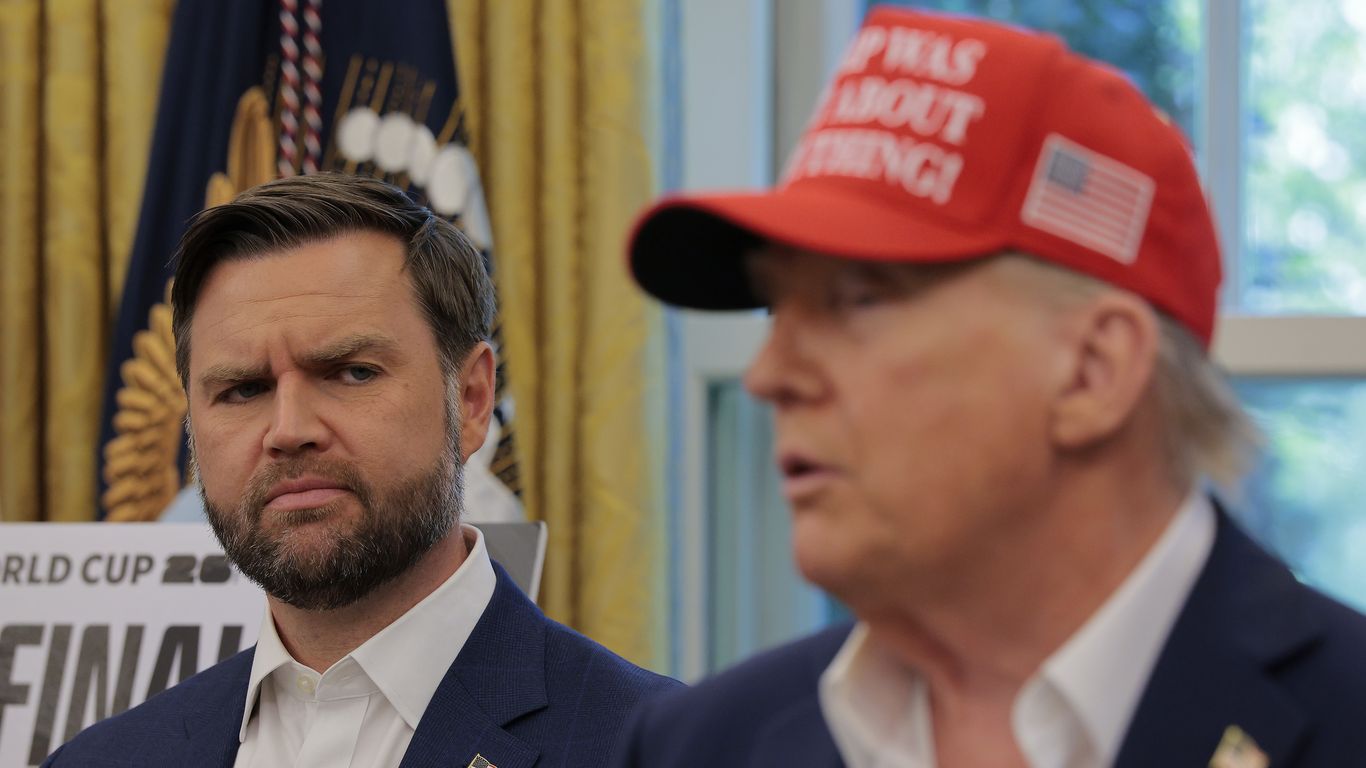
Trump's Shadow Diplomacy: Has Russia Made Significant Concessions on Ukraine?
Senator J.D. Vance (R-OH) has ignited a firestorm of speculation and concern with claims that Russia has made "significant concessions" to former President Donald Trump regarding potential negotiations to end the ongoing conflict in Ukraine. This revelation, delivered during an interview with NBC News on August 24, 2025, immediately raises critical questions about the future of U.S.-Russia relations, the fate of Ukraine, and the direction of American foreign policy under a potential second Trump administration. While the specifics of these alleged concessions remain shrouded in secrecy, Vance's statement implies a potential shift in Russia's negotiating stance, one that could drastically alter the landscape of the war and its geopolitical implications.
Vance's Revelation: A Glimpse Behind the Curtain
Vance's announcement comes against the backdrop of a protracted and devastating war in Ukraine, now well into its second year (assuming a pre-2025 timeline for the ongoing conflict). International sanctions have been levied against Russia in an attempt to cripple its economy and force a withdrawal. Despite this pressure, negotiations between Russia and Ukraine have remained largely stalled. According to an alleged interview with Russian Foreign Minister Sergey Lavrov, taped on Friday (August 22, 2025), President Vladimir Putin's willingness to meet with Ukrainian President Volodymyr Zelenskyy was contingent on an "agenda" that was "not ready at all." This context makes Vance's assertion that Russia has offered "significant concessions" all the more intriguing.
The statement that "sanctions aren't off the table," delivered alongside the concessions claim, suggests a possible dual-track approach. Even with perceived movement from Russia, economic pressure remains a potential tool. It's crucial to unpack what these "concessions" might entail. Are they territorial adjustments? Guarantees of neutrality for Ukraine? Or are they related to the lifting of sanctions imposed by the United States and its allies? The lack of transparency surrounding these details breeds uncertainty and fuels anxieties about the potential terms of any future agreement.
The Role of Donald Trump: Back-Channel Diplomacy?
The claim that Russia has made these concessions to Trump Russia Ukraine deal specifically points to the former president's potential involvement in back-channel negotiations. Trump's past pronouncements on Russia, and his perceived willingness to engage with Putin, have consistently raised concerns among foreign policy experts. This development suggests that Trump may be positioning himself as a potential mediator, a role that could grant him significant influence in shaping the outcome of the conflict and resetting U.S.-Russia relations. How such influence will look in the future is anyone's guess. The idea of Russia Ukraine talks Trump mediated could potentially lead to unexpected outcomes.
Potential Implications for U.S. Foreign Policy and the Future of Ukraine
A Trump-brokered agreement between Russia and Ukraine could have far-reaching consequences. A shift in U.S. foreign policy is highly likely, potentially leading to reduced aid to Ukraine and a re-evaluation of strategic alliances. The impact of Trump on Ukraine war is therefore crucial. Consider the following potential scenarios:
- Reduced U.S. Aid: A Trump administration might argue that a negotiated settlement obviates the need for continued military and financial support for Ukraine. This could leave Ukraine vulnerable and weaken its negotiating position.
- Shift in Alliances: A rapprochement between the U.S. and Russia could strain relations with traditional allies in Europe, who have largely supported a strong stance against Russian aggression.
- Compromised Sovereignty: The "concessions" made by Russia could come at the expense of Ukrainian sovereignty, potentially involving territorial concessions or limitations on its future foreign policy choices.
Furthermore, the future of Ukraine negotiations Russia concessions will likely be dictated by a number of factors, including the internal political climate in both countries, the level of international support for Ukraine, and the overall geopolitical landscape.
Sanctions and the Future of U.S.-Russia Relations
Vance's statement that sanctions "aren't off the table" suggests that they remain a tool of leverage, even under a potential Trump administration. However, the effectiveness of sanctions in influencing Russian behavior is a matter of ongoing debate. Will the sanctions remain in place even if concessions are made? Could these sanctions be used as an incentive to work out a deal that's favorable to Ukraine? The potential long-term implications of how will sanctions on Russia end under Trump is a question that's on the mind of many.
A change in U.S. policy toward Russia could have profound implications for European security and the future of NATO. A weakened NATO, or a perceived lack of U.S. commitment to collective defense, could embolden Russia and destabilize the region. The ripple effects of US Russia relations Ukraine conflict could be felt for years to come.
Conclusion: Navigating Uncertainty and the Need for Transparency
Senator Vance's claim of Russian concessions to Trump has introduced a new layer of complexity to the already fraught situation in Ukraine. The lack of transparency surrounding these alleged concessions raises serious questions about the future of the conflict, the direction of U.S. foreign policy, and the potential for a geopolitical realignment. As the world watches and waits, it is imperative that all parties involved prioritize transparency and work towards a just and lasting peace that respects the sovereignty and territorial integrity of Ukraine.
